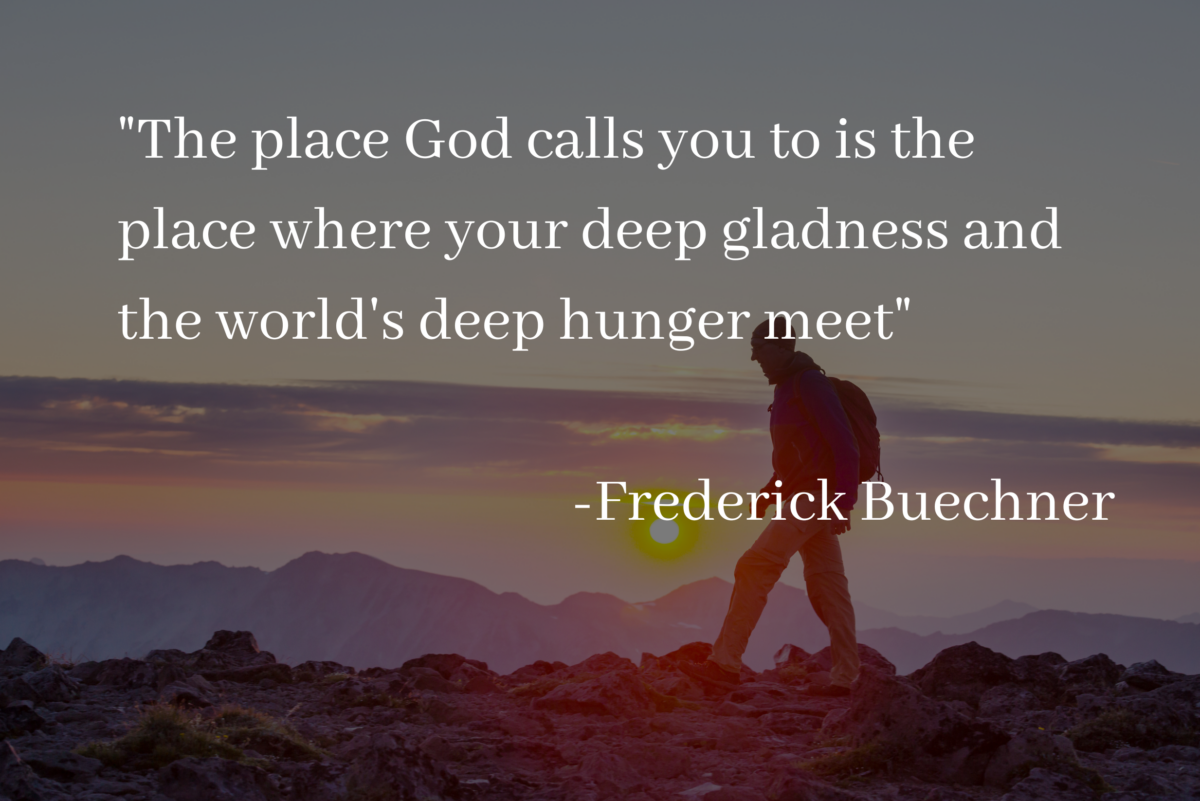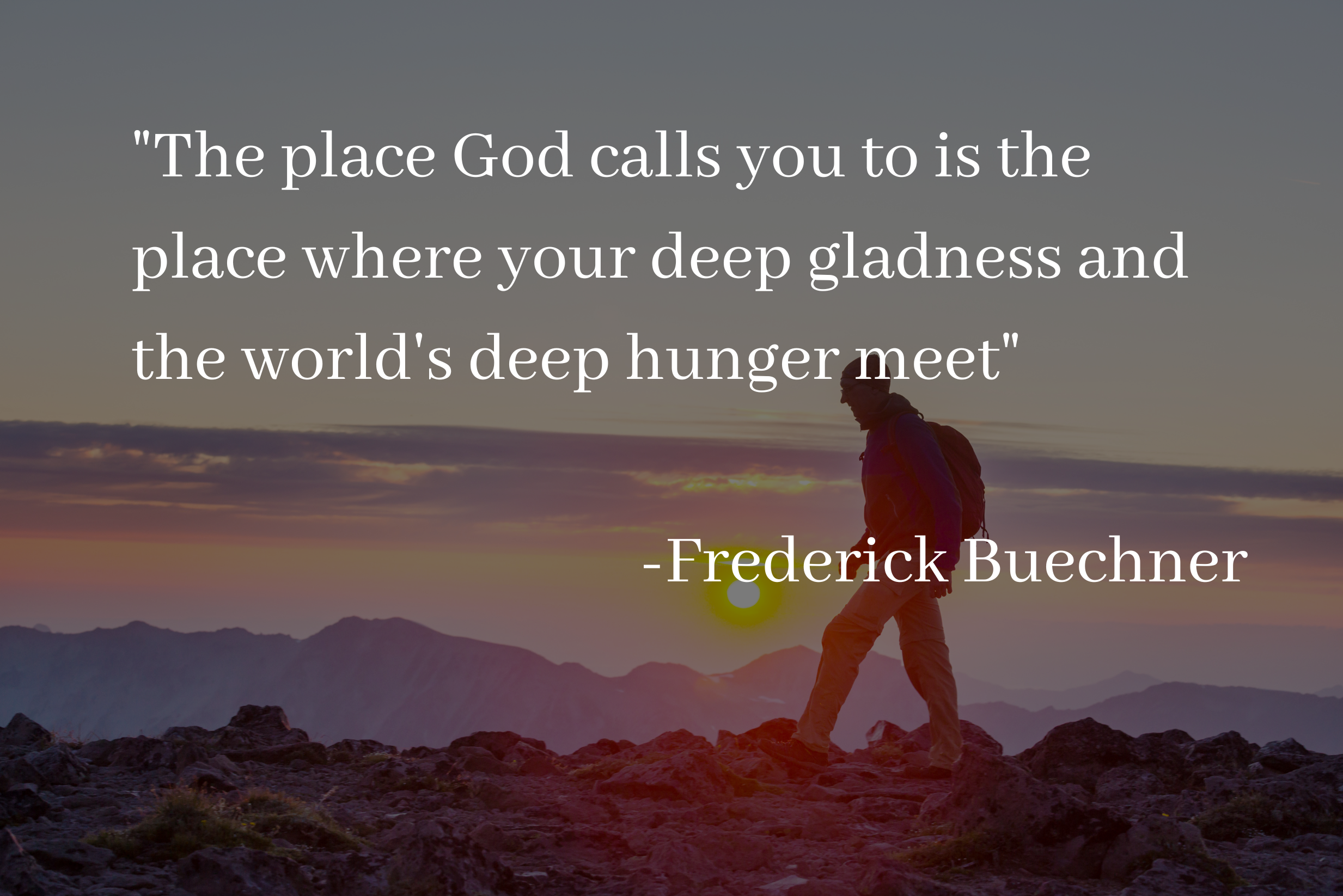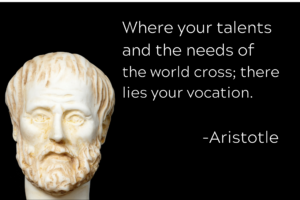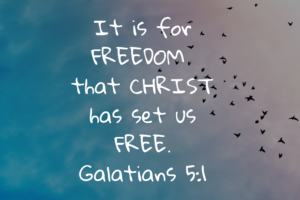Co-missioners,
A new church year starts on Sunday. Those who pay attention to such things will be drawn to think again about God’s unfolding operations in the world, and about the roles they’re given to play in this, whether as recipients or contributors.
This makes it an apt time to pass along a gift from Jill Peláez Baumgaertner. It’s an abridged version of a Convocation address she delivered this past August at King University, a Presbyterian college in Bristol, Tennessee. The year’s theme at the school is “vocation.” Frederick Buechner’s famous pronouncement on that topic was to be the guiding mantra for Jill’s talk. We think the conclusion she reaches will leave you smiling with delighted relief as you contemplate God’s hopes and expectations of you over the coming twelve months. By all means share it with others who agonize over such things too.
+ + +
‘Tis the season to remind you yet again of the forthcoming Crossings conference. January 22-25 in Belleville, Illinois. Two and a half days of reflection on “The Promising Community” and the witness it bears in a world that needs it. Splendid speakers. Splendid company. And with in-person and virtual options, as well as full and partial scholarships, we feel there is no reason for you not to attend. We hope to see you there.
Peace and Joy,
The Crossings Community
__________________________________________________________________
God’s Call: Forgiveness, Freedom, and Vocation
or
“What is it you plan to do with your one wild and crazy life?”
by Jill Peláez Baumgaertner
Today I have been asked to introduce a major focus for the year here at King University: that focus is vocation. I resonate strongly with King’s devotion to the work of my dear friend, Frederick Buechner, who died in early August at the age of 96. May light eternal shine on him. It is an honor to be here to open the school year with his words on vocation. “The place God calls you to is the place where your deep gladness and the world’s deep hunger meet.”
Before I became a dean or a professor, before I became a college student, when I was in high school, I knew exactly what I wanted to study in college and I knew exactly what my vocation was. I was being called, I was certain, to go into medicine. So—I entered college as a chemistry/pre-med major. I liked chemistry very much in fact, but it was mainly a means to an end—medical school and finally the title of M.D. Then in my sophomore year I took a required English class, and I couldn’t believe what I found. The book that made me into an English major was William Faulkner’s Absalom, Absalom!. It was absolutely magnificent. It contained all of life, and the story was timeless. It was about the South and history and race and family conflict. It contained everything. And I looked around me. An entire hallway of professors who spent their lives reading, writing, teaching literature.
My usually calm and supportive father almost had a stroke. I had never seen him so upset. “English!’ he said. “What are you going to do with an English degree?” And I realize, looking back, that the greatest gift my father gave me—the gift that is so often given to sons, not daughters, was his dream for me. It was a big dream—to become a physician. It was his dream for himself which had never been fulfilled. As it turned out, it was not my dream although I thought it was. But his confidence in me gave me the courage to respond to my true call when it came. You have to understand: this was very unusual for the time. Fathers in those days—especially a Cuban father like mine–rarely had career ambitions for daughters.
But what happened to me was that in that second year of college I had begun to understand the true meaning of vocation. Later in my experience on the Lutheran-Evangelical frontier, as a Lutheran teaching at Wheaton College, vocation for many years was a word heard more frequently on the Lutheran side of the hyphen than on the Evangelical. My evangelical students were much more likely to talk about “trying to follow God’s will for their lives.” This of course is admirable, but while it may sound similar to the concept of vocation as God’s call, it actually puts all of the emphasis on the individual’s efforts to discern and almost none at all on God’s actual call. Vocation involves more than occupation and more than human response. Vocation is not just one’s profession or career or one’s work. I realized only later in my life that God had called me through that Faulkner novel—and it was a real call. I respected and loved my father and wanted to please him, but his call was not what vocation was all about. Did I know at that point what vocation was all about? No, I knew only that literature delighted, challenged, and inspired me. I knew where my deep gladness was, but I had not yet discovered what the world’s deep hunger was, and how I was to face it—or the obstacles I would encounter. Buechner’s words were calling me not only to pursue what I loved but also to be of service to the world. That was a pretty large ticket. How in the world could the study of literature satisfy the world’s hunger? I’m sure that was what my father was wondering, too.
Let’s step back a few centuries. The Swedish theologian Einar Billing has pointed out that the word “calling” as a “clearly defined idea” was a “creation of the Reformation.” It is found first in the writing of the 16th century reformer, Martin Luther. But where did he get it? He did not really recognize it as a discrete and clearly defined idea in Scripture, but Luther linked God the Caller to our struggle with obedience and acceptance of God’s forgiveness. The Holy Spirit issues the call, and the call comes through the forgiveness of sins. This is quite different from ambition as the driving force behind one’s vocation.
This is certainly what the 17th century poet, John Donne discovered. He desperately wanted a position at court, but he made a fatal error—he fell in love with 15-year-old Anne More, and eloped with her. Her father, highly positioned at court, was furious and cut off Donne’s chances for political appointment. Years passed and finally, after a decade of poverty, Donne had no more options. The king—James I—had urged him to become clergy in the Church of England. Donne resisted for a long time, but the exigencies of having to support a family of ten children forced him to rethink. This doesn’t really sound like the kind of call Buechner describes. Where is the joy and delight? And then add to this the fact that Donne’s motives for accepting the call to ministry were certainly suspect. What is clear, however, is that he became in time one of England’s greatest preachers, leaving at his death ten volumes of sermons which are as interesting for the patient reader as his extraordinary poetry. It is as a poet that most contemporary readers encounter Donne, but it was as a preacher that he found his lasting vocation. In his poetry Donne often seeks God’s violent intercession in his life, and when it does not occur, he feels trapped and betrayed. “Batter my heart, three person’d god,” he pleads, but there is no indication that God responds to him by battering him into submission. There is, however, every indication in Donne’s biography that God pursued him until finally he could resist no longer.
Another metaphysical poet, George Herbert, also responded to the call to become an Anglican priest. He had been poised for a brilliant political career, but he chose instead to become a pastor at Bemerton, a tiny parish outside Salisbury. The common misconception about Herbert is that his response to God’s call was more settled and less tortured than Donne’s. But all one has to do is to look carefully at his poem “The Collar” to discern serious spiritual struggle. He rages in this poem against the restraint he thinks the church is going to impose on him. But at the end he responds simply and immediately to God’s call:
But as I rav’d and grew more fierce and wilde
At every word
Me thoughts I heard one calling, Child!
And I reply’d, My Lord.’
Most notable in this poem and most important for the focus on the theme of vocation is the speaker’s initial inability to accept the forgiveness available to him. He does everything he can to evade grace. In the end, the call he hears and responds to is God’s sovereign call of ownership accompanying the offer of forgiveness.
Here in Herbert’s poem we see a striking exploration of the meaning of vocation. Herbert’s call, a gift from God, as free as grace, is not a duty or a sacrifice or a conscious effort to reflect the glory of God in his work. It is a response to the forgiveness of sins. What is important here is not how a person reacts to the call—but that person’s condition before the call—a condition which requires the forgiveness of sins. So—our calling is to our professions and to faith, a Reformation idea which Luther invented.
Deanna Thompson writes in a recent issue of the Christian Century that “Christians often refer to Frederick Buechner’s observation that ‘The place God calls you to is the place where your deep gladness and the world’s deep hunger meet.’” She says that “this has been a sweet spot for many of us who have come to see our calling as the place where our passions, our joy, and our gifts can be put to work in service of the suffering and needs of the world. But now,” she continues, “in my fourth remission living with incurable cancer, I know that conversations about vocation must also make space for the deep sadnesses that fill our lives. Our grief, too, can and does intersect with the world’s hunger.”
So—how does one choose? How can one know which path to take? One of my students confessed to me that he was paralyzed by the fear that he would choose a path that was not God’s will for his life. This is, of course, wrong thinking. God’s forgiveness gives us freedom. Will we always respond perfectly? No. I guarantee that we will make mistakes—sometimes big ones—along the way. Luther said, “Sin boldly,” which means that we must step out with confidence that even the best of our efforts will contain the stain of sin somewhere, but we must act as forgiven persons who also forgive. Sin boldly because God does not want you to be passive. God wants you to act, to respond to the world’s needs—and that my friends, will give you deep gladness.
So—back to the big question: how does the study of literature or of history or philosophy or foreign languages, or music, or art serve the world? In fact, how does the study of any discipline serve the world—the study of business, for example, or math or computer science or sociology or even the sciences?
Two important qualities any of these disciplines can engender are curiosity and a propensity to ask questions and pursue answers. Learning to ask the right questions is what philosophy, theology, literature, and history emphasize in their concentration on the thinking of great minds of the past. Learning to observe and analyze is at the heart of the hard sciences, of math, of the social sciences. Students learn to question and to pursue answers to their questions by taking responsibility for their own education, another lifelong learning pattern that is fostered by what you are studying here at King. But perhaps the most important activity that any discipline should encourage is growth of the imagination, without which life becomes dull and human potential is in danger of never being realized.
Ron Hansen in Mariette in Ecstasy addresses this question of vocation better than anyone. At the end of the book the main character, a rather lonely woman ostracized even by her Christian community, talks about her freedom in Christ, and she says, “We try to be formed and held and kept by Christ, but instead he offers us freedom. And now when I try to know his will, his kindness floods me, his great love overwhelms me, and I hear him whisper, Surprise me.”
For John Donne, for George Herbert, for Luther, for Mariette, and for you and for me, vocation offers not the security of a known and familiar routine. It offers, instead, forgiveness hand-in-hand with a most radical freedom. And God says to us, “Surprise me.”
Thursday Theology: that the benefits of Christ be put to use
A publication of the Crossings Community








You must be logged in to post a comment.